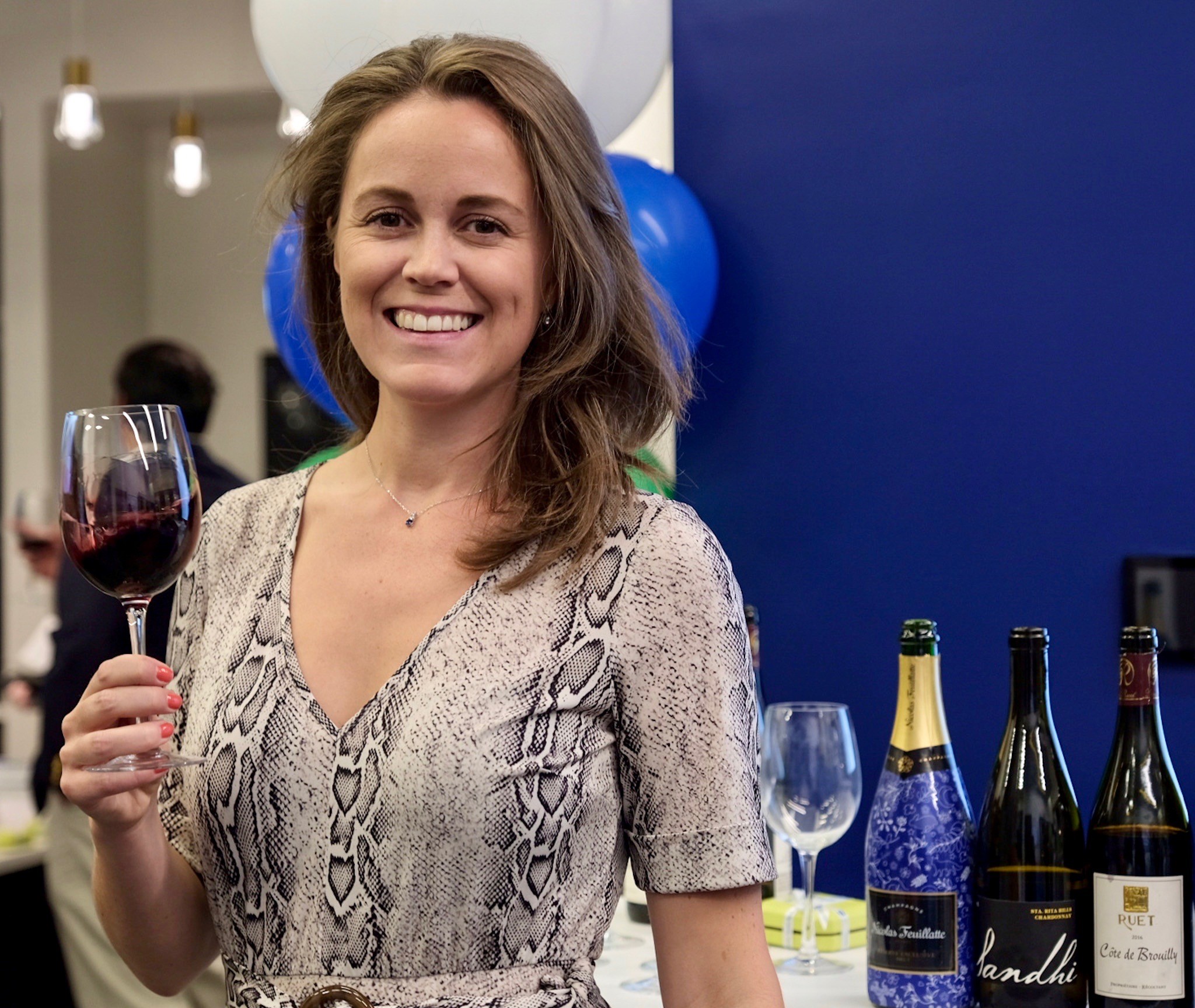
A Q&A with Miami Wine Specialist Sarah Phillips
We spoke with the Florida-based co-founder of Miami Wine Guide about all things Loire Valley.
This week, we sat down with Miami-based wine specialist Sarah Philips. The co-founder of the Miami Wine Guide shared her insights on vegetarian pairings, which red wines to chill, and why we should all be thinking more about Muscadet.
Read on for our full Q&A.
Loire Valley (LV): When the topic of Miami comes up, people often think of frozen cocktails and crushable light beer. Where do you think wine should fall in the conversation, and how do wines like those from the Loire Valley actually work in warm climates?
Sarah Phillips (SP): I think in the four years I’ve been in Miami the city has changed quite dramatically in terms of wine. We've seen a lot of new openings, and there's a really exciting crop of new wine lists. We had some previously, but there are more of them now. I think there's a growing and engaged consumer base who wants to experience and try different styles of wine, and really understand what they're drinking. This is great for those of us who are engaged in the industry.
So I think what's kind of interesting from my point of view, is the diversity of styles that you've got in the Loire Valley. So obviously there’s the crisp Sauvignon Blancs and Muscadets. But what I would really like people who live in warm climates to understand is that the lighter-bodied style of Cabernet Francs can be drunk chilled. That's a really interesting opportunity for the region here because I’m constantly asked what red wine can be chilled? An answer I often give is lighter styles of Cabernet Franc from the Loire.
(LV): So true! Is there any advice in particular you give to newer wine professionals when they’re starting to explore the Loire Valley and want to learn more about it?
(SP): I think it's a great region for experimenting if you're trying to learn about wine in general, because the Loire produces a full range of styles, including everything from bone dry Muscadet up to fully sweet Quarts de Chaumes, for example. And then you've got all of the sparkling wines as well. So I think my advice to anyone exploring the region in general would be to simply try as many of the styles from the Loire as possible. And I think that's a great region if you're trying to sort of train your palate and study.
LV: Is there anything that you think professionals often forget about the Loire Valley?
SP: I think that we've seen Sauvignon Blanc, obviously enormously popular, so I think perhaps we need to remember to consider the styles beyond Sauvignon Blanc. It’s important to look at other wines as well, and particularly Muscadet. I think Muscadet gets a bit of a hard time. I think Muscadet gets misunderstood as this sort of very austere, and almost unlovable wine. But actually, if you get some higher quality examples, it's quite expressive and delicious.
It’s a wine that I think gets lost because people confuse Muscadet with Muscat and Moscato. And actually they're completely different, basically opposite wines.
LV: Do you have a favorite food pairing for Loire Valley wines?
SP: I'm vegetarian, and actually Loire Valley wines are quite vegetarian-food friendly. One of my favorites is the classic, lovely goat's cheese salad with a white wine. But more importantly, because a lot of the vegetable vegetarian foods are pretty aromatic and flavorsome, you need wines that have perfume. And I think that by and large, that's what the Loire Valley does well from Cabernet Franc to Sauvignon Blanc.
LV: Can you tell us about the Wine Guide Miami, why you started it and what it’s doing for the Miami wine community?
SP: So it was probably 18 months ago now that we started and it began. It began because I had wanted to write a wine column in Miami, but there was no space or interest in having a wine column in our local newspaper. So I just thought, ‘Hey, I'll create one myself.’ And I invited my friend Jacqueline Coleman to co-edit and co-own it with me. It’s just been a great outlet for writing about Miami-specific wine topics. There's a lot of writing that's done on wine, on different regions, different styles, etc., but I thought it was important to do something that was really locally focused. It's got a small but engaged audience that kind of followed along.
I think the most successful thing we do is actually posting the events that are happening in Miami every month. Of course when we're involved in running events ourselves, that's very helpful. So the guide has been proven to have quite an active audience. We worked with another regional body and recruited 60 consumers, and it took us six days to sell out an event which was great. So it's just about filling in the gap we saw for people who are interested in wine in the city.
LV: Have you learned anything in the process you would share with other drinks professionals?
SP: I would tell everyone, ‘just do it.’ Truthfully, the guide is something that we do very part time, on top of the other work that we do. So between two people, it's not that much work to keep up with. And it's enabled us to meet some interesting people, and open some doors. I think people find it genuinely useful as a resource, and it is very much intended to be useful rather than something you want to sit and read for hours and hours. You know, if we write a restaurant review, it's going to be 300 or 400 words, a quick impression of what it's like to dine somewhere.




